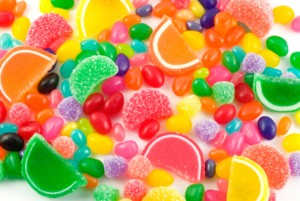CSPI: FDA failing to protect children
The Food and Drug Administration is failing to protect children from the disturbing behavioural problems caused by artificial food dyes, even though evidence of those problems has continued to mount since 2011, when an FDA advisory panel last considered the issue. That’s the finding of a new report by the non-profit Center for Science in the Public Interest (CSPI), that takes a withering look at the agency’s inaction on dyes in the face of what CSPI says is a growing consensus among researchers and healthcare providers who treat behavioural problems that avoiding food dyes benefits some children.
Since 2011, eight detailed analyses, including two meta-analyses, concluded that excluding food dyes, or a diet that eliminates dyed foods and certain other foods and ingredients, reduces behaviour problems in some children. Furthermore, recent analyses of the dye content of popular foods and drinks indicate that many American children are consuming amounts of dyes far higher than the levels demonstrated in some trials to trigger problems. CSPI, which in 2008 asked the FDA to ban Red 40, Yellow 5, and six other synthetic colourings, says that the dyes fail to meet the federal safety standard for colour additives, which requires “convincing evidence that establishes with reasonable certainty that no harm will result from the intended use of the colour additive.”
Most food and drink companies, including ones that sell products in the United States, have eliminated most dyes in products sold in Europe, CSPI notes, where regulators have required labels warning consumers about the behavioural problems associated with dyed foods. But in the United States, CSPI says that a forthcoming study conducted by a researcher at the University of North Carolina, Chapel Hill, and CSPI found that more than 90 percent of child-oriented candies, fruit-flavoured snacks, and drink mixes are coloured with dyes and that a majority of child-oriented foods made by such companies as Kraft, PepsiCo, and General Mills contain dyes.
“Major food companies like Coca-Cola, General Mills, McDonald’s, and PepsiCo should be embarrassed that they’re selling their American customers foods coloured with Yellow 5, Yellow 6, Red 40, and other synthetic dyes, even as they’re selling naturally coloured or dye-free versions of the same foods in Europe,” said CSPI president Michael F. Jacobson. “American children will continue to be exposed to these powerful chemicals so long as FDA lags behind its European counterparts.”
“It’s bad enough that the FDA has declined to ban dyes or require warning labels on dyed foods in light of the strong scientific evidence that they cause behavioural problems,” said CSPI senior scientist Lisa Lefferts. “It adds insult to injury that the FDA hasn’t even informed consumers about the impact these unnecessary chemicals are having on some children and their families.”
CSPI’s report recommends that the FDA ban synthetic dyes, require a warning label in the interim, and update the inaccurate information on its website.
CSPI submitted its report, Seeing Red: Time for Action on Food Dyes, to the FDA’s regulatory docket on food dyes.
“FDA cannot, consistent with its legal requirements, acknowledge the evidence regarding the harmfulness of dyes and yet continue to do nothing,” wrote CSPI to Acting FDA Commissioner Stephen Ostroff. “Indeed, continued inaction is the only course that remains utterly unjustified by ethics, science, or law.”




































